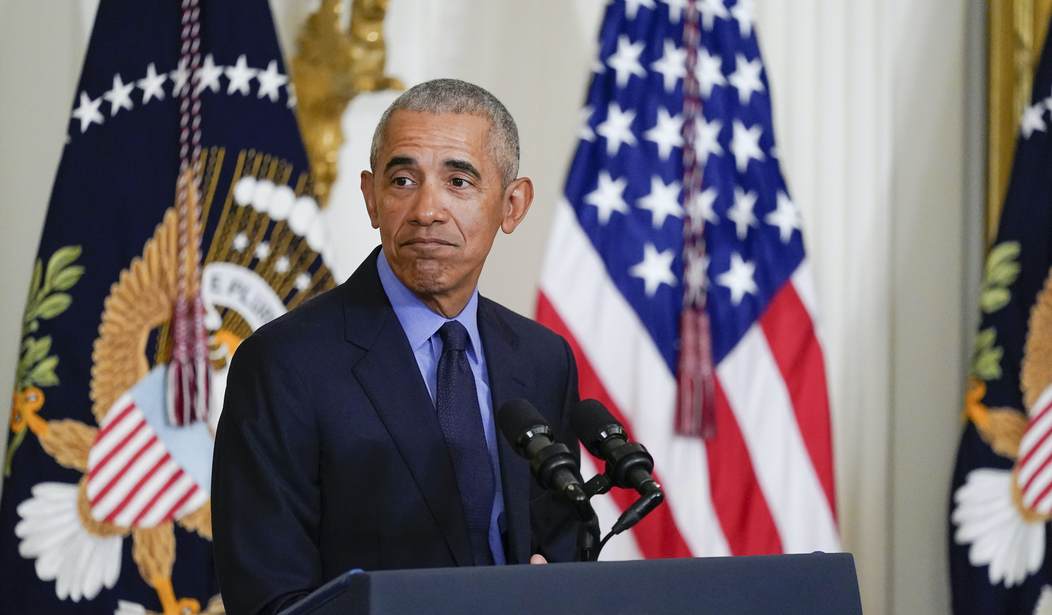A couple of years ago, when the battle began heating up over section 230 of the Communications Decency Act, many journalists were quick to jump on the bandwagon. The section in question should be modified or deleted entirely, or so the argument went. That would allow the government to clamp down on Bad People saying Bad Things. At the time, Atlantic magazine executive editor Adrienne LaFrance published what may have been the hyperbole bomb of the year, with a piece proclaiming that Facebook is a “Doomsday Machine” rather than a media company. He literally compared it to the end of the world. The same magazine doubled down last week with an opinion piece from Nobel Peace Prize winner Maria Ressa. She compared the major social media companies to Hiroshima and Nagasaki, saying that an “atom bomb has exploded in our information ecosystem.”
Both of these writers are describing what has now come to be known as the infamous “disinformation” that we hear so much about. And the Russians don’t hold the patent on that idea. This warped concept has come to be understood as “any opinion that the operator of a social media company disagrees with.” At the Wall Street Journal, Crispin Sartwell offers a less hysterical take on the subject, suggesting that having the government rush in to put the brakes on Facebook and Twitter probably isn’t going to solve anything and could even open the door to more problems. He points to a recent interview given to The Atlantic by former President Barack Obama. Jeffrey Goldberg tried to get Obama to bite on the subject of regulation, but even the 44th President was unwilling to go there.
Last summer, as the courts gave the Federal Trade Commission a green light to undertake antitrust action against Facebook parent Meta, President Biden said of the company that “they’re killing people” by permitting alleged vaccine misinformation to appear on the site. He later said he meant Facebook users were using the site to kill people, but one wonders what sort of deference the FTC ought to extend to a company that the president regards as consisting of or abetting killers.
Atlantic editor-in-chief Jeffrey Goldberg, in a new interview with Barack Obama, tried to goose the former president into joining the moral panic. Mr. Obama, as usual, was measured or even elusive, but he also disagreed with Mr. Goldberg. “For all the flaws that may exist in our own society, you can get any information you want right now,” he said. “It’s in your pocket, unfiltered.”
He pledged allegiance to the First Amendment, and then observed that “the divisions that we see in our democracy of race, of region, of faith, of identity—those are there. They are not creations of social media. They’re not creations of any particular network.”
I’ve made no secret of my distaste for the way Twitter and Facebook are run when it comes to quashing free speech. It’s extremely frustrating that no viable alternatives to those platforms have been able to gain traction, allowing the normal forces of the free market to induce change. But there’s one reason why I believe opening the door to full government regulation of social media platforms is a bad idea and it should be especially shunned by conservatives.
Consider the topics that are most frequently identified as “misinformation” by both the current federal government and most of the mainstream media. One category includes almost everything to do with the government’s response to the pandemic. Despite numerous studies suggesting that many efforts at mitigation were, at a minimum, not as useful as we were being told, any mention of disagreement was immediately labeled as misinformation and the users who wrote those words were frequently banned. Opining that face masks might not have done much to prevent transmission or that people had concerns over potential side effects from the vaccines put you squarely back in the category of the atom bomb hitting the information ecosystem. And how about Hunter Biden’s laptop? Until fairly recently, that was “Russian disinformation” that could see you sent to the Twitter Gulag.
Now you want to wrest control of how information and opinions on social media are filtered away from Twitter and Facebook and give it to… the Biden administration? Seriously? Isn’t that a bit like complaining that foxes have been raiding your henhouse and bringing in a dire wolf to take care of the problem?
As I already said, I would prefer a free-market solution to this issue rather than doing away with Section 230 entirely. That seems impossible when the social media giants control so much of the associated infrastructure that most startups launched to compete with them have floundered due to a lack of resources and access. But the one ray of hope we’ve seen recently is the possibility that Elon Musk may be riding to the rescue at Twitter, carrying the banner of a free speech warrior. Granted, this isn’t going to be a solution for every problem of this type because you’re going to quickly run out of mega-billionaires who also value free speech. But at least it’s a start. And if Musk can put enough of a scare into the liberal guardians of the other platform, perhaps they’ll get the message and take a hint. Or at least we can hope it might happen that way.







Join the conversation as a VIP Member